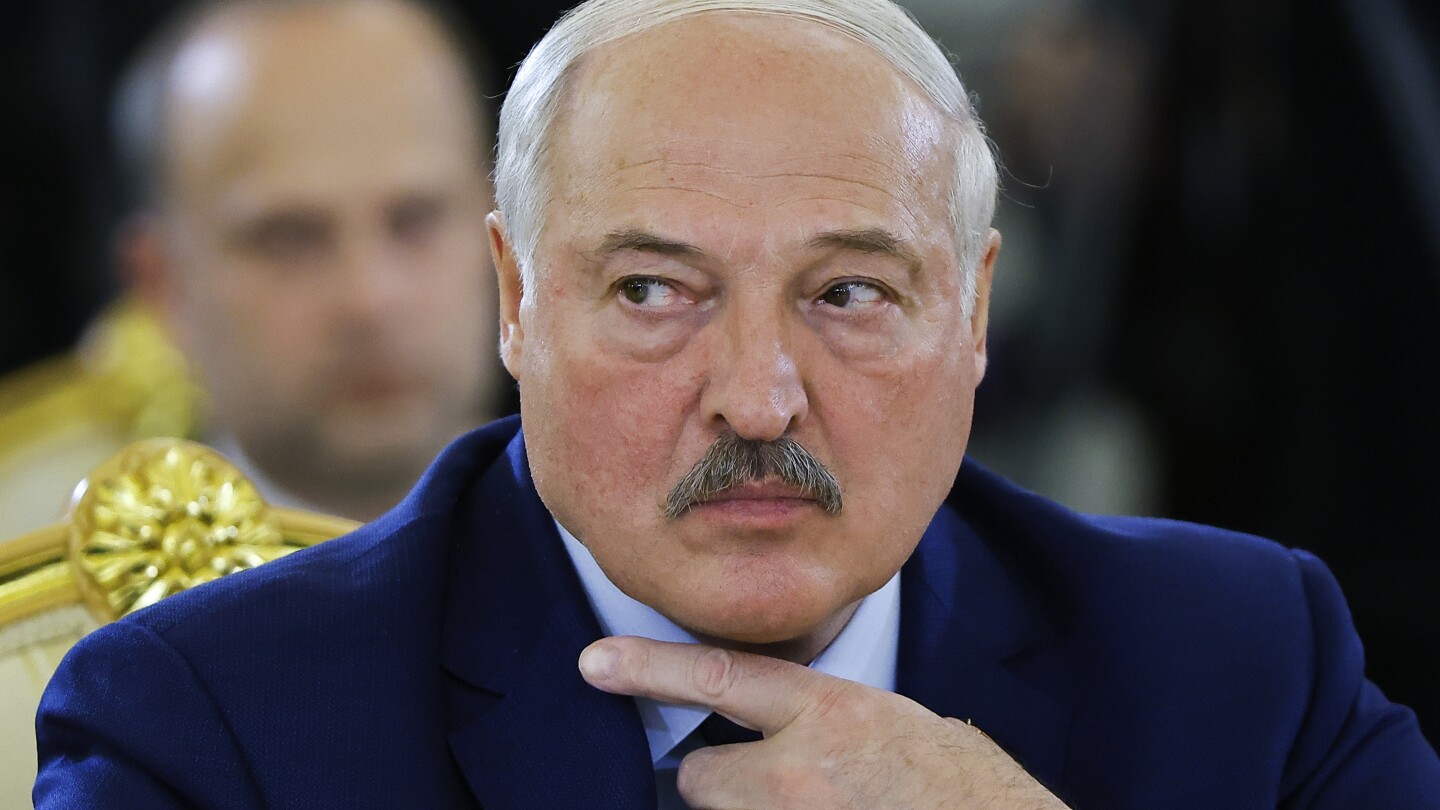TALLINN, Estonia (AP) — Belarusian President Alexander Lukashenko on Monday pardoned 37 people serving prison sentences for “extremist” crimes, his office said.
It is the fourth time since July that the authoritarian leader has pardoned dozens of political prisoners in what some observers see as an attempt to soften his image.
Lukashenko’s office didn’t identify any of the prisoners pardoned Monday, but said they include six women. It described them as guilty of “crimes of an extremist character,” a reference to people who took part in protests. Lukashenko’s press service said all had repented and asked to be released.
There are over 1,300 political prisoners in Belarus, according to the Viasna human rights center. They include the group’s founder and Nobel Peace Prize laureate Ales Bialiatski and Polish newspaper journalist Andrzej Poczobut, whose release Poland is seeking. At least six political prisoners have died behind bars, Viasna said.
In 2020, Belarus was rocked by its largest-ever protests following an election that gave Lukashenko a sixth term in office but was condemned by the opposition and the West as fraudulent. According to Viasna, 65,000 people have been arrested since the protests began and hundreds of thousands have fled Belarus.
Before Monday’s releases, Lukashenko since July had pardoned 78 other people convicted of participating in mass protests, including journalists and activists with serious illnesses. They included the leader of the Belarusian Popular Front, Ryhor Kastusiou, who suffers from severe cancer.
Viasna representative Pavel Sapelka said Lukashenko’s pardoning of some convicts doesn’t mean a relaxation of his crackdown on dissent.
“Freeing some political prisoners doesn’t mark the start of a thaw in Belarus, as harsh repression continues and the authorities have rounded up four times as many activists — about 400 people in three months,” Sapelka said.
Some observers linked the pardons to a presidential election next year in which Lukashenko is set to extend his 30-year rule.
“Lukashenko is trying to humanize his image ahead of the presidential election to start bargaining with the West about the recognition of vote results and a partial rollback of Western sanctions,” analyst Valery Karbalevich said.

